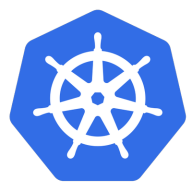

Find out what your peers are saying about Microsoft, Amazon Web Services (AWS), Akamai and others in Infrastructure as a Service Clouds (IaaS).
| Product | Market Share (%) |
|---|---|
| Akamai Connected Cloud (Linode) | 7.1% |
| Amazon AWS | 16.6% |
| Microsoft Azure | 14.9% |
| Other | 61.4% |
| Product | Market Share (%) |
|---|---|
| Kubernetes | 6.2% |
| Red Hat OpenShift Container Platform | 19.5% |
| Amazon EKS | 11.9% |
| Other | 62.4% |


| Company Size | Count |
|---|---|
| Small Business | 28 |
| Midsize Enterprise | 3 |
| Large Enterprise | 1 |
| Company Size | Count |
|---|---|
| Small Business | 25 |
| Midsize Enterprise | 9 |
| Large Enterprise | 47 |
Linode Pricing Page
CPU, transfer, storage, and RAM bundled into one simple price.
Kubernetes (K8s) is an open-source system for automating deployment, scaling, and management of containerized applications.
It groups containers that make up an application into logical units for easy management and discovery. Kubernetes builds upon 15 years of experience of running production workloads at Google, combined with best-of-breed ideas and practices from the community.
We monitor all Infrastructure as a Service Clouds (IaaS) reviews to prevent fraudulent reviews and keep review quality high. We do not post reviews by company employees or direct competitors. We validate each review for authenticity via cross-reference with LinkedIn, and personal follow-up with the reviewer when necessary.